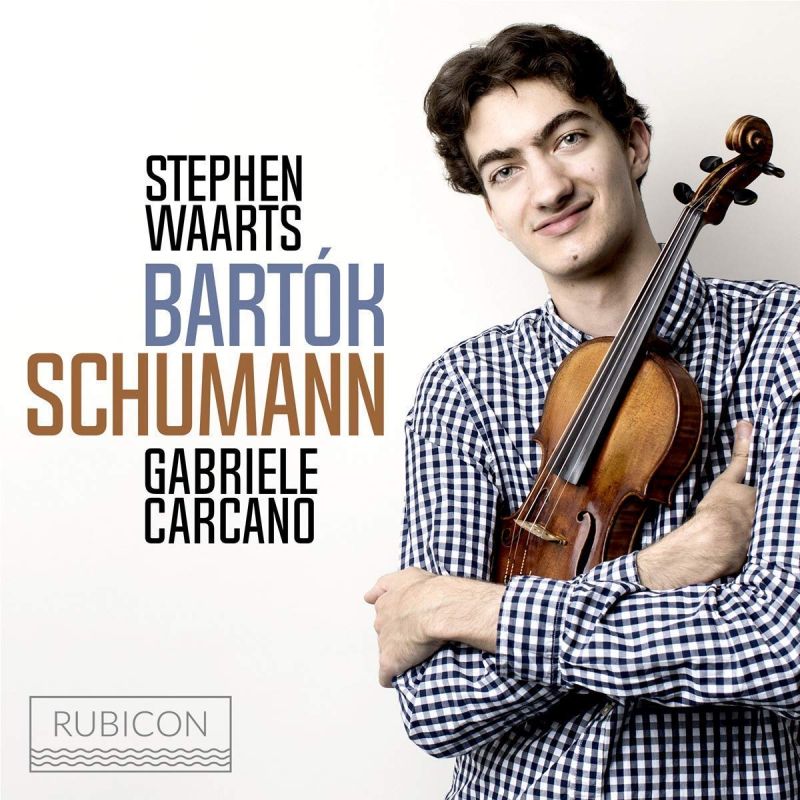BARTÓK; SCHUMANN Violin Sonatas (Waarts)
View record and artist detailsRecord and Artist Details
Composer or Director: Béla Bartók, Robert Schumann
Genre:
Chamber
Label: Rubicon
Magazine Review Date: 02/2019
Media Format: CD or Download
Media Runtime: 73
Mastering:
DDD
Catalogue Number: RCD1027

Tracks:
| Composition | Artist Credit |
|---|---|
| Sonata for Violin and Piano No. 1 |
Robert Schumann, Composer
Gabriele Carcano, Piano Robert Schumann, Composer Stephen Waarts, Violin |
| (3) Romanzen |
Robert Schumann, Composer
Gabriele Carcano, Piano Robert Schumann, Composer Stephen Waarts, Violin |
| Hungarian Folksongs (1947) |
Béla Bartók, Composer
Béla Bartók, Composer Gabriele Carcano, Piano Stephen Waarts, Violin |
Author: Andrew Farach-Colton
Bartók’s Hungarian Folk Tunes are even more sharply characterised. (These seven pieces from the large piano set For Children are arrangements by Joseph Szigeti, although Rubicon shamefully makes no mention of this anywhere.) Waarts shows his tonal range more fully here. His hoarse eloquence and subtle portamento in the first is as ravishing in its own way as his silken, golden tone he spins in the Andante sostenuto.
But it’s Bartók’s First Sonata that’s the prize here. Waarts and Carcano navigate the work’s varied, often thorny terrain without a misstep, and reveal so much in the score that’s wondrous and beautiful. There’s magic in the slow movement’s delicate atmosphere, thanks to long-breathed phrasing and some breathtaking soft playing. Then, in the finale, they generate tremendous excitement through rhythmic precision and clarity rather than by going on a hell-for-leather rampage, as Kremer and Argerich do in their hair-raising live account from Berlin (EMI, 6/09). I love Carcano’s articulate rumblings at 2'15", so startlingly clear and creepy. Waarts digs in fiercely when called for, yet his control is never in doubt. What a joy to hear even the highest-lying passages realised with such assurance and finesse. I’m convinced he’s the real deal.
Discover the world's largest classical music catalogue with Presto Music.

Gramophone Digital Club
- Digital Edition
- Digital Archive
- Reviews Database
- Full website access
From £8.75 / month
Subscribe
Gramophone Full Club
- Print Edition
- Digital Edition
- Digital Archive
- Reviews Database
- Full website access
From £11.00 / month
Subscribe
If you are a library, university or other organisation that would be interested in an institutional subscription to Gramophone please click here for further information.




